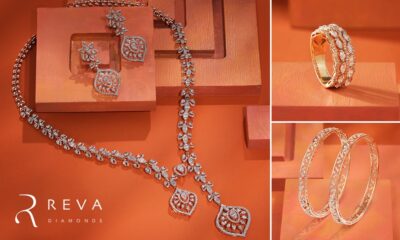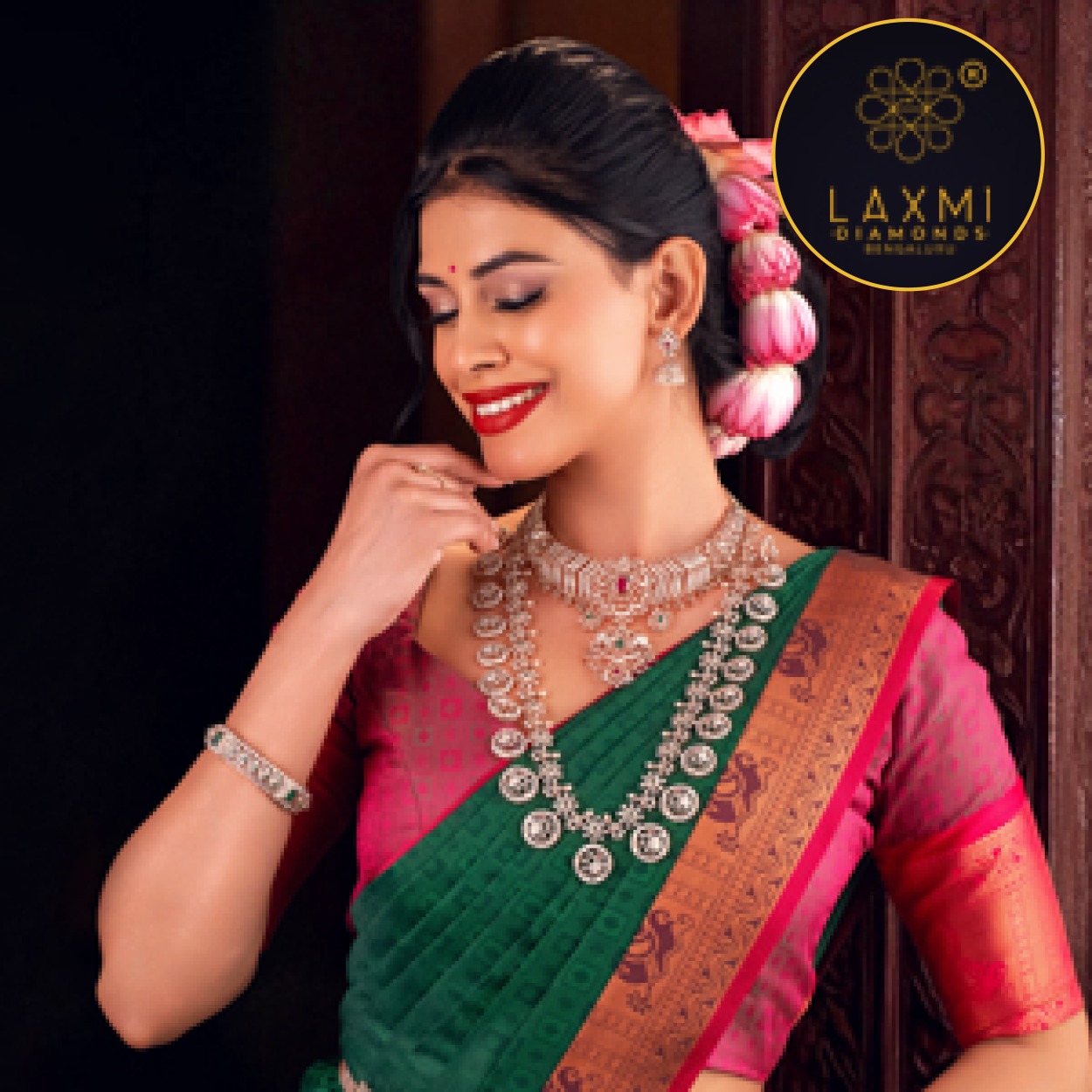Feature
Future of jewellery design
In the dazzling world of jewellery design, a new era is unfolding, blending creativity with the magic of Artificial Intelligence (AI). For designers, it’s an exciting adventure where tradition meets innovation.

Blending creativity with the magic of AI, redefining the boundaries of artistic expression
In the dazzling world of jewellery design, a new era is unfolding, blending creativity with the magic of Artificial Intelligence (AI). For designers, it’s an exciting adventure where tradition meets innovation.
The pandemic’s push toward digitalization has helped drive this journey, according to Paola De Luca, founder and creative director of trend-forecasting agency The Futurist. While disruptive changes in AI may take five to 10 years to assimilate fully, she says, the industry is already witnessing a significant shift.
Speaking at the opening of The Joy of Colour” exhibition in March 2023 at the Shenzhen Jewellery Museum in China, Paola De Luca said, “Colour is light and light is energy. Humanity is cracking the borders of languages, rules, geographic and political barriers merging in parallel realities. Entering the 3.0 era, my vision of the future of jewellery design encompasses designing and producing formats that are interspersed with immersive experiences, creating hybrid spaces where digital art and culture will inspire consumers and the trade to enjoy the ultimate luxury experience.”
The integration of AI-driven parametric tools is allowing jewelry designers to explore new possibilities, create innovative designs and push the boundaries of creativity. One of the key advantages of Design AI in the jewelry design process is its ability to analyze vast amounts of data and predict emerging trends with remarkable accuracy. By understanding shopper preferences, purchasing patterns and future customer trends, AI algorithms enable designers to tailor their jewelry design concepts to specific target audiences.
AI can allow designers and craftsmen to focus on the more creative aspects of design, while the AI handles the more tedious and time-consuming tasks of producing colour and style variations at the early stages of the design process. This can increase efficiency and allow designers to be more productive.
The accessibility of AI has surged, making it both powerful and affordable. AI has democratized content creation. Prompt-based models like image generator Dall-E and language-based system ChatGPT enable anyone with an internet connection to generate content in an instant. The question arises about who has fair access to this tool and who doesn’t.
AI can currently generate two-dimensional images resembling sketches or computer-aided design (CAD) renderings. However, the transition from text prompts to 3D printing in the jewelry industry is still in its infancy.Whether designers wield a traditional pencil or navigate the digital realm of CAD, AI emerges as a dynamic collaborator, offering tools and possibilities that redefine the boundaries of artistic expression.
Feature
More Sparkle, Less Rules: Winter 2025’s Jewelry Is All About Personality
Jewelry isn’t just an accessory this season—it’s the main character. Here’s what to stack, pin, swing, and layer now.
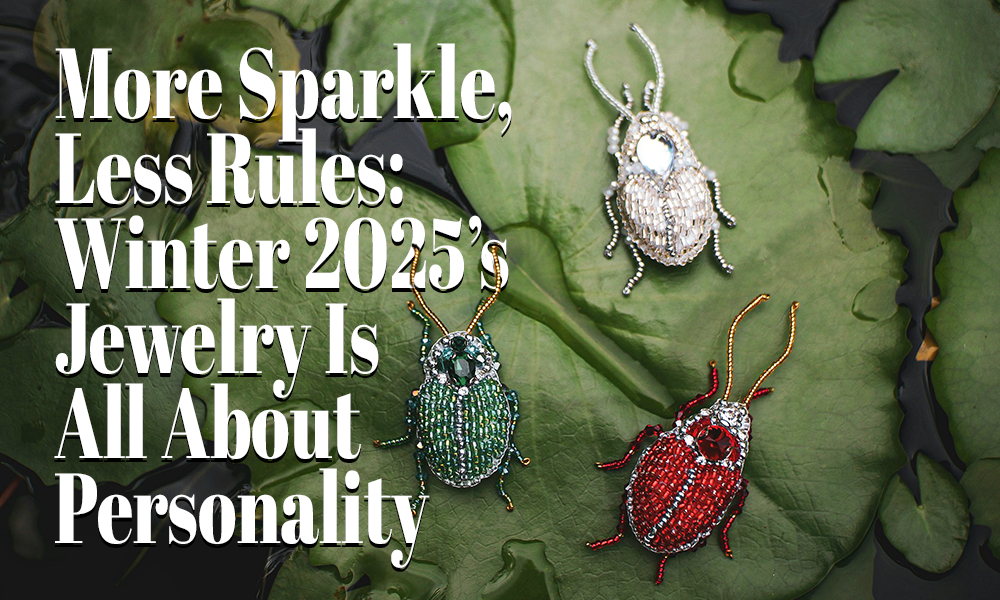
Forget quiet luxury—this season’s jewelry is anything but shy.
From the dramatic runways of Paris to the street style heroes in New York and Milan, to the Serene Fashion Parades of India, Fashion has many names and styles for each season. Every season is different from the previous, in terms of Fashion!
The Fall/Winter 2025 is ushering in a jewelry revival that’s less about prestige and more about personality. The mood? Think bolder, looser, minimalistic yet chunky and yet exceptionally offbeat.
Designers are ditching dainty and embracing drama: statement cuffs, grandma’s brooches (but make it cool), and necklaces so long they might get tangled in your belt loops. If your jewelry box has been playing it safe, it’s time to shake things up.
Here are the five key trends dominating the cool-weather conversation—each with just the right mix of nostalgia, irreverence, and runway-ready style.
1. Statement Cuffs: The Arm Party Is Back
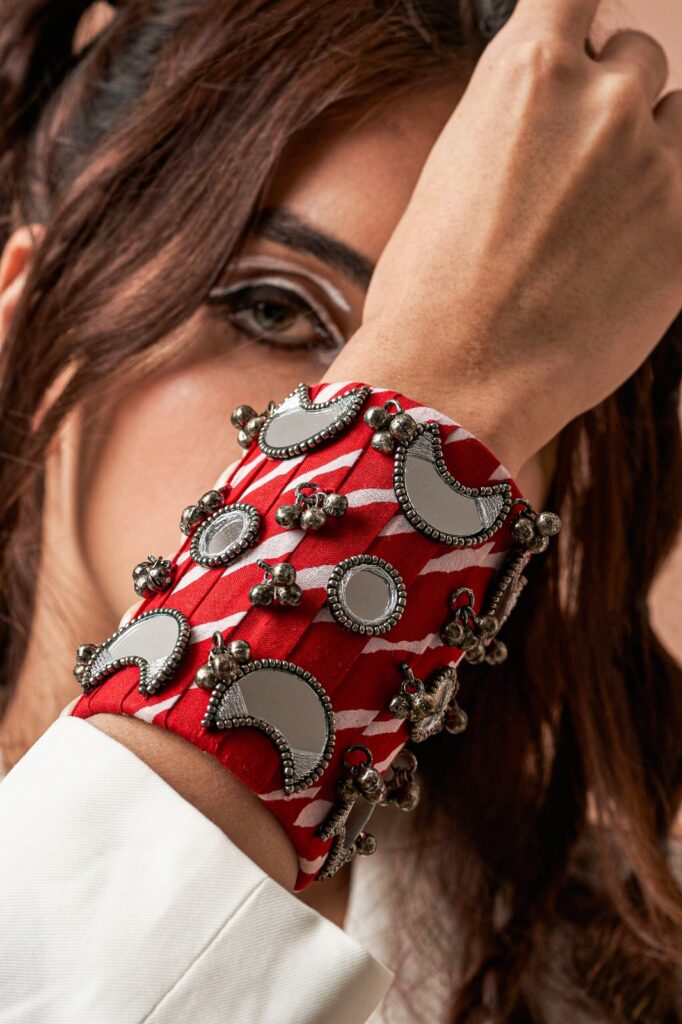
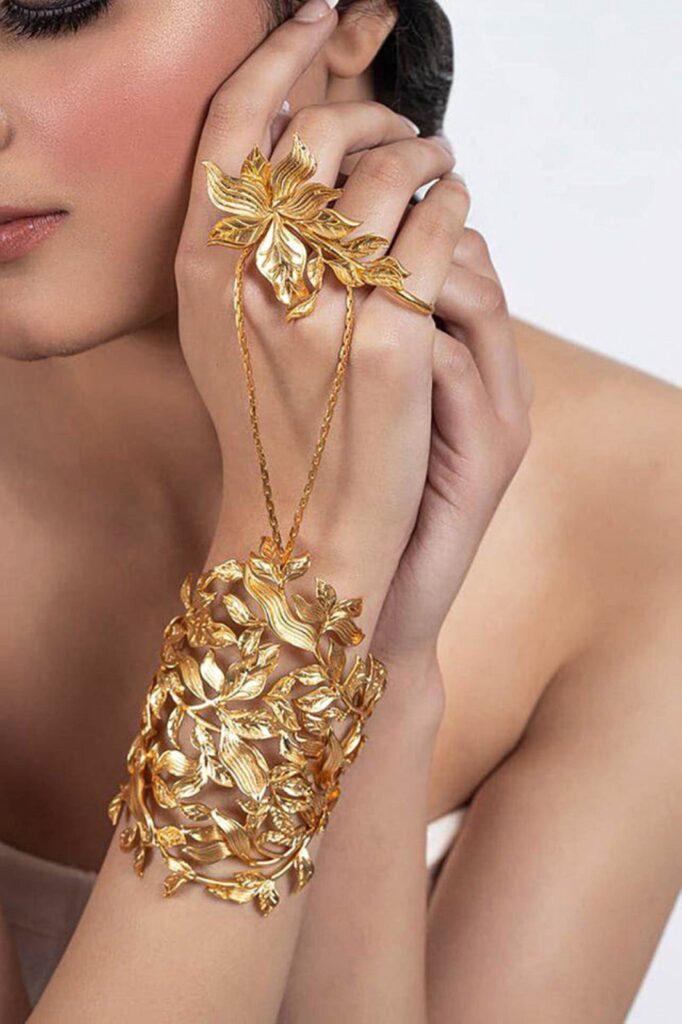
Big, sculptural cuffs are taking center stage. Whether it’s polished metal, lacquered wood, or gemstone-studded creations, architectural wristwear is the bold accent every neutral coat or knit sleeve needs.✔️ Pro tip: Stack different materials for unexpected texture play, or let one oversized cuff steal the show.
2. Big Brooch Energy
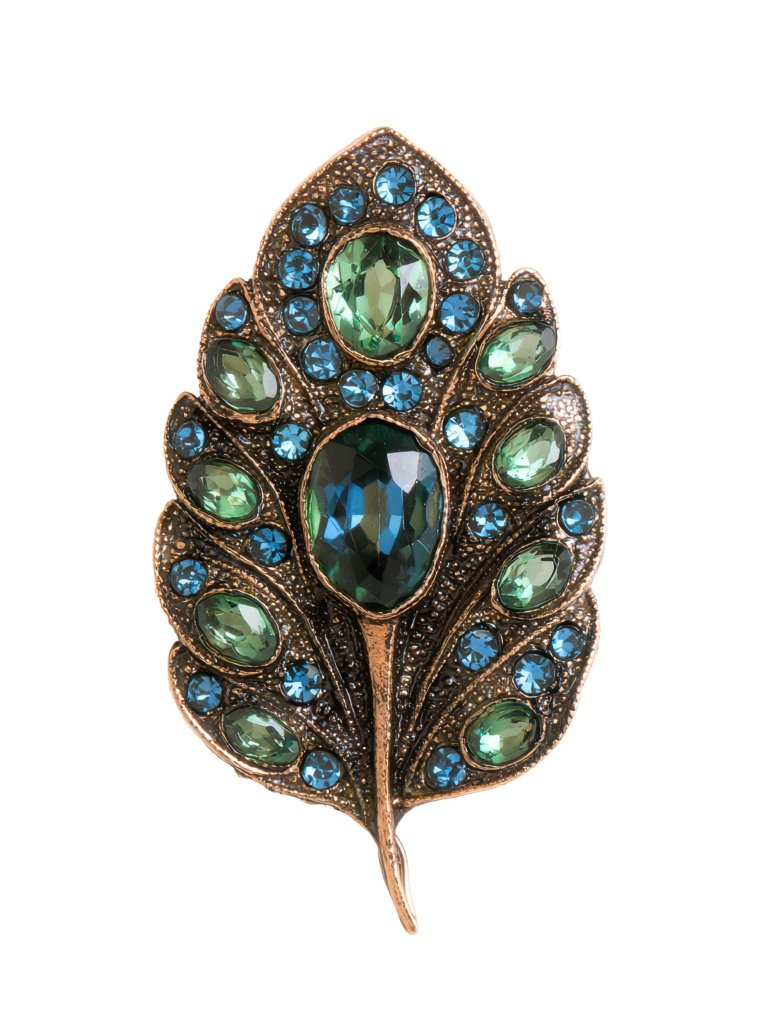
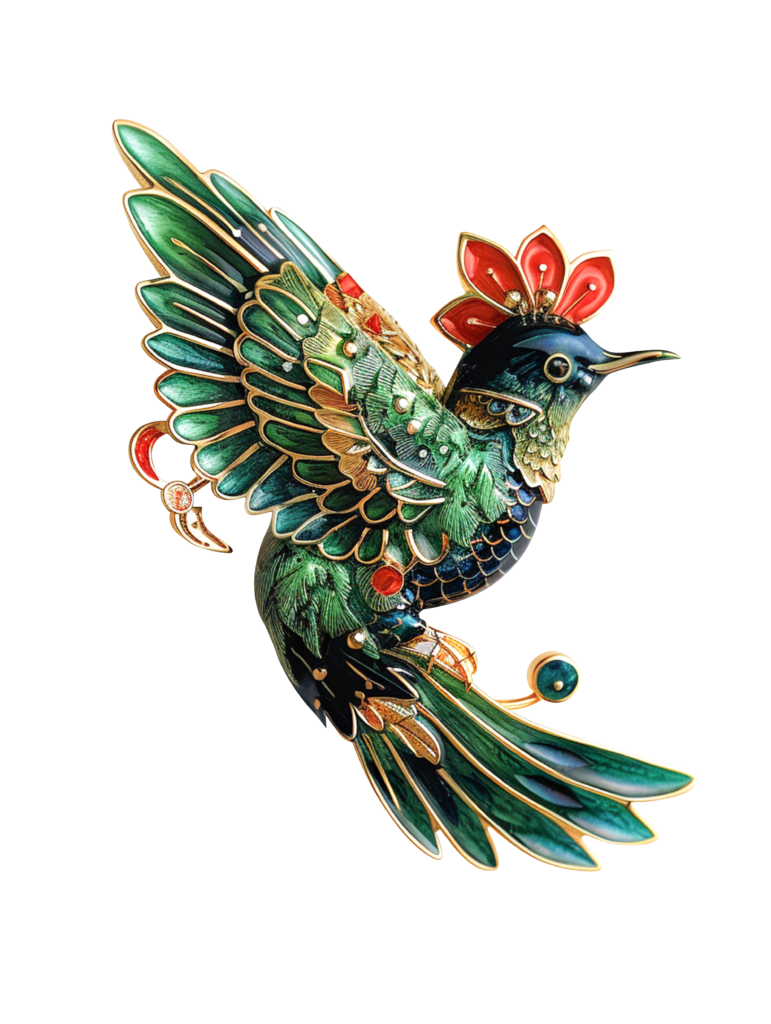
The brooch is officially back—and no, it’s not just for grandmas anymore. Designers are pinning brooches to lapels, collars, and even shoes. From florals to abstract art pieces, it’s all about piling them on.
✔️ Try this: Cluster a few on your blazer or bag strap. Vintage shops & are goldmines for these.
3. Long, Layered Necklaces: The More the Merrier
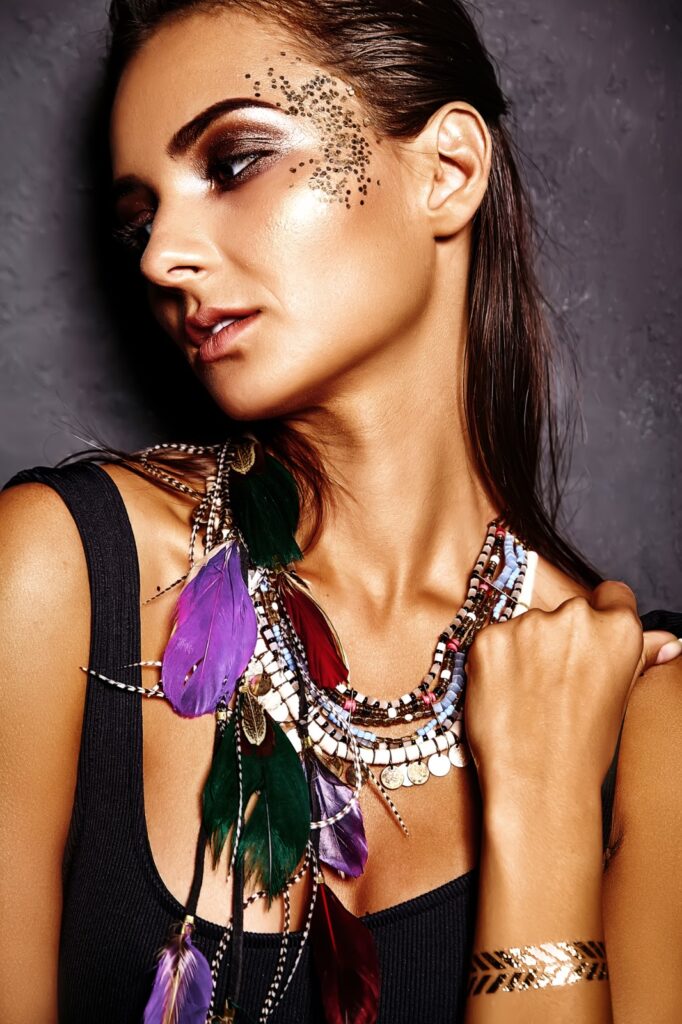
Minimalists, look away. Necklaces are going long, chaotic, and charm-laden. Think layers that hit the waistband, with a mix of boho beads, bold pendants, and nostalgic trinkets. Juicy Couture flashbacks? We’re here for it.
✔️ Layer like a pro: Mix fine chains with chunky vintage finds for an eclectic, lived-in feel.
4. Fringe Earrings That Move With You
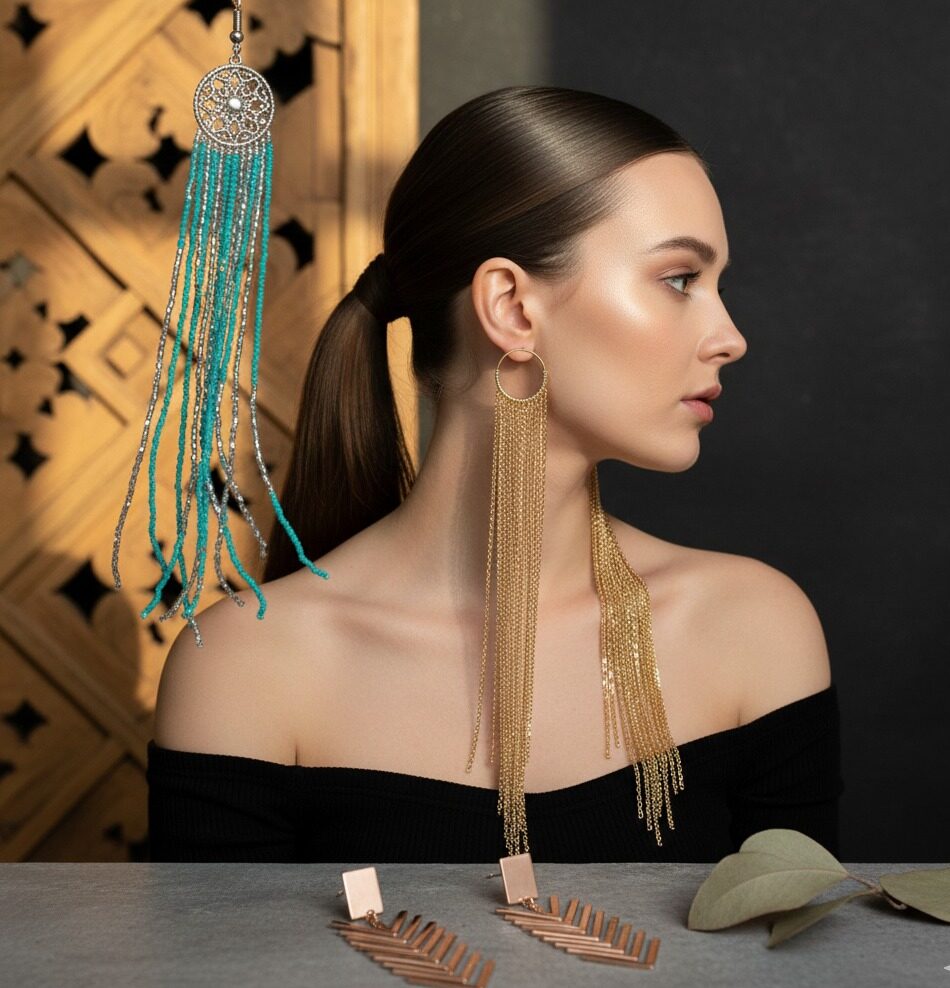
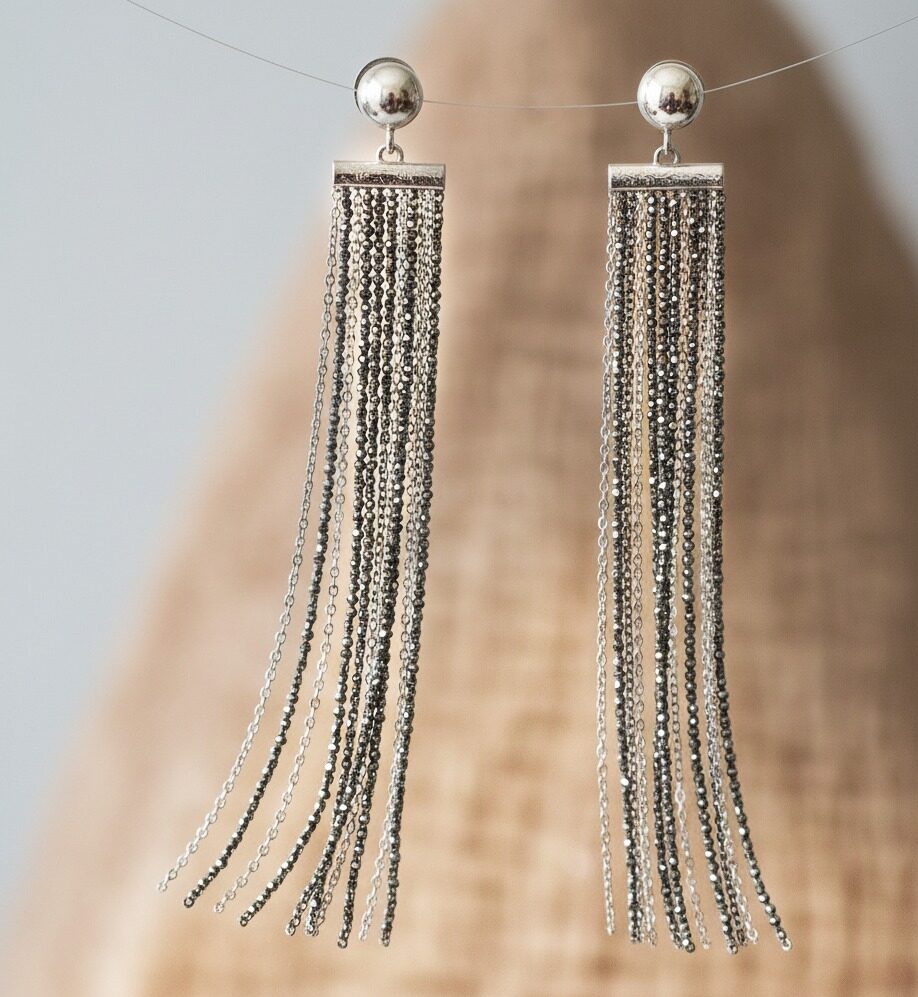
After seasons of sleek hoops and subtle studs, fringe earrings are back with a vengeance. Beaded, chained, or metallic, these swinging beauties add movement and drama—perfect for softening heavier fall silhouettes.
✔️ Best worn with: Swept-back hair, oversized scarves, and a little attitude.
5. Unexpected Placement: Jewelry Goes Rogue
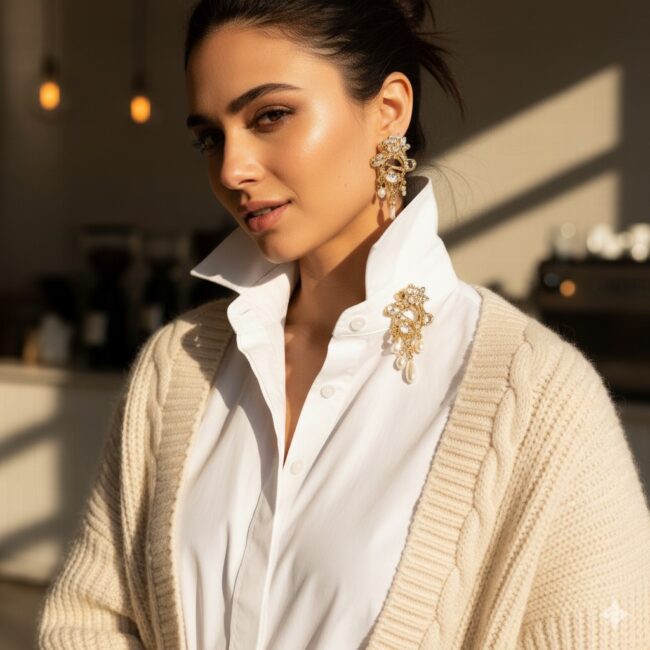
Here’s where things get weird—in the best way. At McQueen, earrings tangled in hair; at Tory Burch, brooches on boots. The message is clear: wear your jewelry where you least expect it.
✔️ Fashion dare: Try a statement earring clipped to your collar, or a vintage pin on your beanie.
Jewelry this season isn’t about perfection. It’s about play. Whether you’re raiding your great-aunt’s collection or layering mismatched finds, the vibe is clear: More is more, Less can be enough and fun is fundamental.
So go ahead—say it with a brooch. Or six.
-

 DiamondBuzz59 minutes ago
DiamondBuzz59 minutes agoBotswana Diamonds rebrands as Botswana Minerals PLC
-
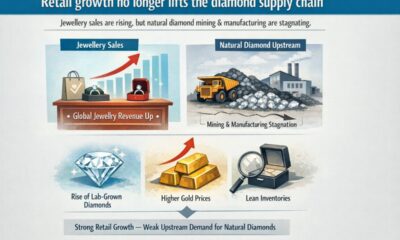
 DiamondBuzz2 hours ago
DiamondBuzz2 hours agoDespite revenue growth in jewellery sector, natural diamond upstream sees stagnation
-
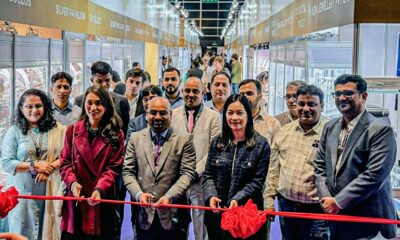
 International News3 hours ago
International News3 hours agoIndia Pavilion at HK twin shows showcases exceptional craftsmanship
-

 International News4 hours ago
International News4 hours agoGold continues to get strength on the Middle East conflict






